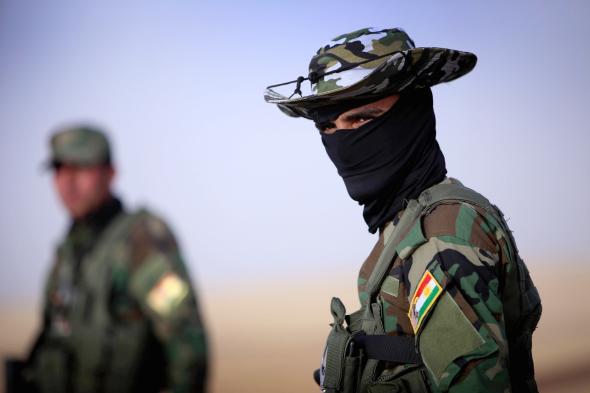In contrast with the less-than-impressive performance of Iraqi security forces, Kurdistan’s Peshmerga forces actually seem to be effectively holding the line against the growing ISIS insurgency. The Peshmerga seem to be more disciplined and loyal and are generally a lot more enthusiastic about the goal of winning autonomy for their region than their Iraqi army counterparts are about defending Nouri al-Maliki’s government.
Kurdish forces yesterday seized Kirkuk—an ethnically mixed city outside the formal borders of Kurdistan that they have long claimed—and it’s not clear if they plan to eventually give it back.
With ISIS seeming to be heading south toward Baghdad, Peshmerga reinforcements have been called in to take the place of the Iraqi army in a number of key spots in the north. The current crisis may turn out to be a rare opportunity for Kurdish authorities to push for greater autonomy or even statehood.
The ISIS crisis comes at a time of heightened tension between Baghdad and Irbil over oil revenues. Kurdistan has begun pumping oil through a pipeline to Turkey without the involvement or approval of the Iraqi government. Iraqi Kurdistan and Turkey—which has been deeply hostile to the nationalist ambitions of its own Kurdish populations for years—have recently developed one of the region’s more unlikely alliances.
Maliki’s government has threatened to sue and wants to cut Kurdistan’s percentage of the country’s oil revenues, but at the moment he needs all the help he can get.
If ISIS is eventually beaten back, it’s likely going to require the help of what seems to be the country’s most organized fighting force, and the conflict will likely end with Kirkuk and several other cities under the control of Kurdish forces. The Kurds may cede these gains back to Baghdad, but I’d expect their price to be high.
